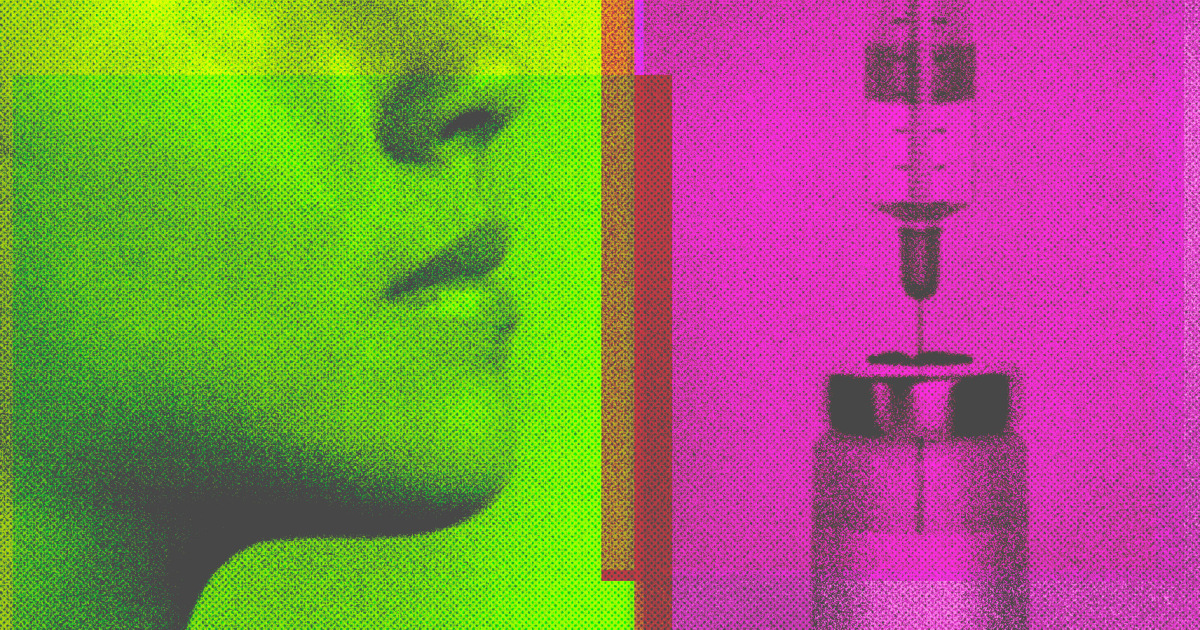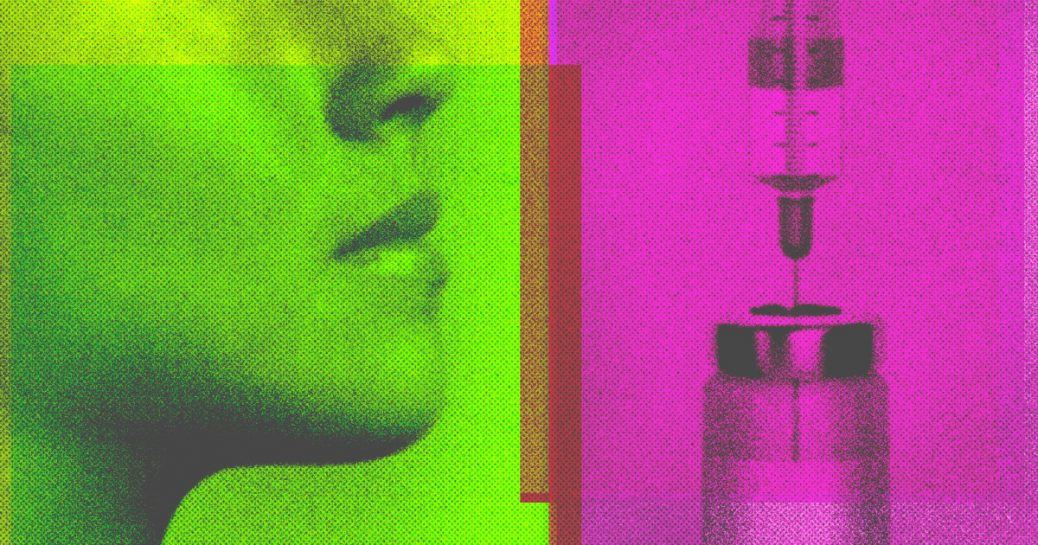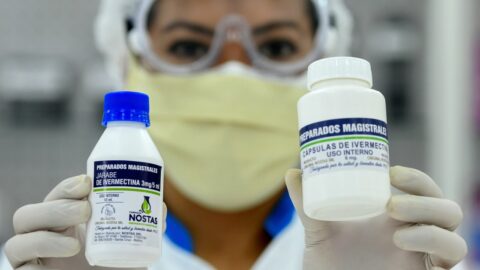
Their coronavirus infections had cleared up, but the patients were met with a grim reality: Scents that were once pleasant had suddenly become foul. Sautéed garlic and onions smelled like rotting garbage, and coffee was no longer palatable.
This distorted sense of smell, known as parosmia, is a fixture of some long Covid illnesses.
Early in the pandemic, smell and taste changes were considered a key symptom of a coronavirus infection. A U.K. study found that around 43% of people who reported losing their sense of smell in March 2020 had parosmia six months later.
But doctors have struggled to determine why people develop parosmia after a viral infection, let alone how to treat it.
New research from Jefferson Health in Philadelphia suggests that a procedure called stellate ganglion block is somewhat effective at reducing parosmia in patients who suffered from the condition for at least six months after their Covid illness and didn’t respond to pharmaceutical or topical therapies.
The treatment involves injecting an anesthetic into the stellate ganglion — a tangle of nerves in the neck that deliver signals to the head, neck, arms and upper chest. It has been used for decades to treat chronic pain.
Out of 37 patients at Jefferson Health who received the procedure and followed up with doctors afterward, 22 reported that their smell distortion had improved one week after the injection. And 18 of the 22 people said their symptoms had significantly improved after one month.
After the first injection, 26 people returned for a second injection on the other side of their neck at least six weeks later. Most people who responded to the first treatment reported additional improvement after the second one, but the injections still weren’t effective in people who saw no change the first time.
The findings are set to be presented Monday afternoon at the annual meeting of the Radiological Society of North America.
Dr. Adam Zoga, a professor of musculoskeletal radiology at Jefferson Health who conducted the research, said the treatment has been life-changing for patients whose parosmia severely impacted their physical and mental health.
“I had a patient who has a young daughter, and she said, ‘I can’t give my 3-year-old daughter a bath because I can’t stand the smell of her soap,’” he said. “Other patients had lost a ton of weight because they didn’t find any food pleasurable.”
What does the procedure entail?
Stellate ganglion block is a 10-minute outpatient procedure that doesn’t require patients to be sedated. Doctors use CT or ultrasound images to locate the nerve bundle at the base of the neck, then administer the injection in that precise spot.
Zoga said some doctors only inject an anesthetic, whereas his team injects “the typical cocktail that we would normally use for a nerve injection: a little bit of corticosteroid, a little bit of short-acting anesthetic and a little bit of long-acting anesthetic.”
The procedure requires technical skill, because the stellate ganglion is close to two main blood vessels responsible for carrying blood to and from the brain. But Zoga said it’s relatively harmless when administered by someone who’s trained to do so.
The injection comes with a side effect, though: Most patients will experience a droopy eyelid, dilated pupil and some vision loss for about 10 minutes, but the symptoms resolve quickly.
Zoga said his first patient’s parosmia symptoms went away completely within a few weeks.
“She hadn’t been able to eat her favorite cold cuts, and right after the procedure she was eating them,” he said. “I’ve kept in touch with her, and we’re 18 months out now and she’s still got complete relief.”
The struggle to treat parosmia
Doctors aren’t sure why stellate ganglion block seems effective in some people with long Covid, said Dr. Kristine Smith, an assistant professor of otolaryngology at University of Utah Health.
“The hypothesis is that these injections do some sort of reset to our nervous system,” said Smith, who wasn’t involved in the research. “I don’t know if we have any clear answers on why that works or doesn’t work.”
Many people see their smell issues resolve on their own, without medical intervention, Smith noted. Others find relief from nasal steroid sprays, saltwater rinses or smell retraining — asking people to sniff the same scents every day for several months in hopes that they’ll regain their old sense of smell.
“Things like stellate ganglion blocks I really reserve for patients who failed those less aggressive medical therapies,” Smith said.
But Dr. Nyssa Farrell, an assistant professor of otolaryngology at Washington University School of Medicine in St. Louis, said there’s little evidence that first-line treatments like steroids or smell training are effective for parosmia, either.
Farrell is recruiting volunteers for a clinical trial that will examine whether stellate ganglion block can improve severe parosmia. She hopes to find out whether the procedure has a placebo effect, since some patients have reported that their symptoms came back after a brief respite following the treatment.
“Is this only lasting for a month for these patients because it’s placebo or is it that this has a real effect and maybe it needs some sort of booster over time, or do we need to change the dose? It’s too soon to tell from these limited case reports,” Farrell said.
In one study that used stellate ganglion block to treat 195 people in Texas with long Covid symptoms, 87% saw improvement in their smell issues post-injection. Another case study found that five out of six patients in Florida felt relief from the treatment.
Farrell’s previous research also showed that stellate ganglion block improved symptoms in about half of 20 participants with total or partial smell loss. Participants viewed the treatment favorably, she added.
“We asked people at the end of the study: Even though we didn’t see this profound impact, would you still recommend this to other people? And they said ‘yes,’” Farrell said.










Recent Comments